2017-05-30
Series "Central & South America"
Authors
Aarón Hernandez Farfán
is a Mexican independent actor and director. He was part of a theatre company before he oriented towards multidisciplinary work and social development. Currently, he is building up his own performing arts company Agua Quemada Creatividad.
Lisa Harborth
is a German arts manager with a preference for Latin America. After her bachelor's degree in musicology and arts management at the University of Music Franz Liszt Weimar, she is currently doing her masters in International Management and Sustainability at the University of Hamburg.
The Mexican arts sector
Good connections are more important than artistic quality
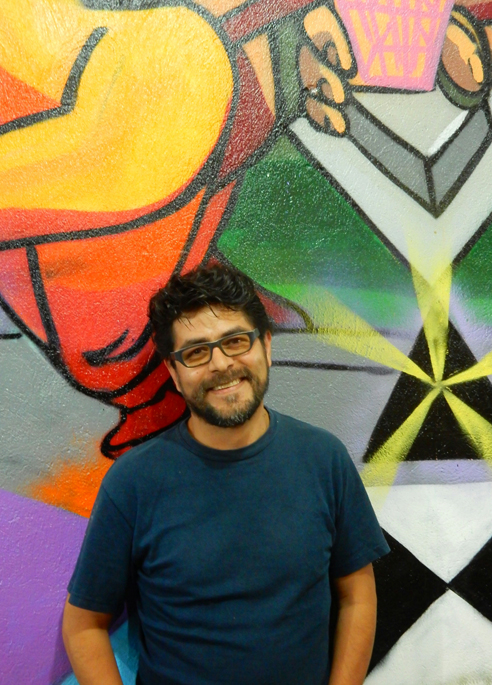
Aaron Hernandez Farfan, a Mexican actor and cultural manager, together with his company Agua Quemada Creatividad visualizes problems affecting the Mexican society, such as violence and injustice. With Lisa Harborth, he talks about the cultural system in Mexico, how politics influence it and which challenges affect the work as an artist in Mexico.
Series "Central & South America"
Lisa Harborth: Can you explain how the cultural system in Mexico is organised and how it is connected to the field of politics?
Aaron Hernandez Farfan: To understand how both systems are connected in Mexico, it is important to understand how the current cultural system was developed. After the election in 1988, president Carlos Salinas de Gotari needed to improve his power among the intellectual and artistic upper-class. So he created what today is called the modern form of cultural institutionalism in Mexico: the National Council of Culture and Arts. The idea was to form an independent organisation that only had to legitimate its actions against the Ministry of Education. The main project of the National Council was the National Fund for Culture and Arts (FONCA). To keep arts and culture independent from the government, FONCA was supposed to be a democratic organisation. But it was problematic that the Mexican president selected the president of the National Council, who in turn chose the secretary of FONCA. And he in turn appointed the FONCA jury of specialists for the different programs. The idea was to the jury members should work as supervisors for the secretary and, at the same time, guarantee a transparent system to the artists. But instead, what was supposed to be a democratic structure at the end turned out to be a very vertical organisation.
Today, the National Council of Culture and Arts is transformed into the Ministry of Culture. This makes it even more authoritarian than it was before, because it is now presided by only one person. The Ministry of Culture runs several departments and programs to support artist, companies and cultural institutions and FONCA is still one of it.
LH: So, the political system is mostly centralized and organised by the Ministry of Culture?
AHF: They have tried to decentralize the political funding system by creating a state institute for each of the 32 Mexican states. The idea is that through the congress the national Ministry of Culture should provide them with resources. The congress manages a huge budget, but it is not transparent how much it is and how is it distributed. To get support from the congress is not easy, you have to act very clever. Corruption is a big problem here. Many deputies ask for a percentage of what you get, but thats in fact illegal. But there are no control mechanisms and obviously no ways to punish it. Thats why I prefer not to apply for support from the congresses budget, even though there are also honest people.
LH: Despite this, does corruption play a big role in the interaction between governmental support and the arts?
AHF: The way the to be supported projects are elected could be corrupted as well. If you are a friend of someone in the government it is much easier to get financial support. But after youve been elected by the Ministry of Culture or FONCA, there is no really corruption anymore. There was a time when you needed to prove every little detail of your expenses. Today it is more build on trust on the artists ability to do their work well.
LH: Do you think the artistic and cultural live in Mexico is supported sufficiently?
AHF: When it comes to invest in culture and art, I think it is never enough. The UN and UNICEF recommend a 7% of the GDP in order to invest in culture and arts. Mexicos budget for this year (2017) is around 10 billion MX$ (around 500 million for the whole federation). That is not even close to 1% of the Mexican GDP. The government has been a little lazy about signing this agreement. The highest amount I got for a project, a theatre production, was around 250.000,- MX$ (around 12.500,- ). That is ridiculous.
LH: In Mexico-City, there are museums at every corner. How are they financed?
AHF: Museums are founded by the Ministry of Culture, but they have independent budgets. They are an important resource in terms of touristic strategies, so they get a budget to organise themselves with. Sometimes, there is a mixed structure between governmental and non-governmental organisations, but the most important museums are government-funded.
Most companies of other cultural sectors, like theatre, are independent. There is only one national theatre company. They also have their own budget, I think, it is around 18.000.000 MX$ (ca. 900.000,- ) per year.
MUSEUMS IN MEXICO CITY
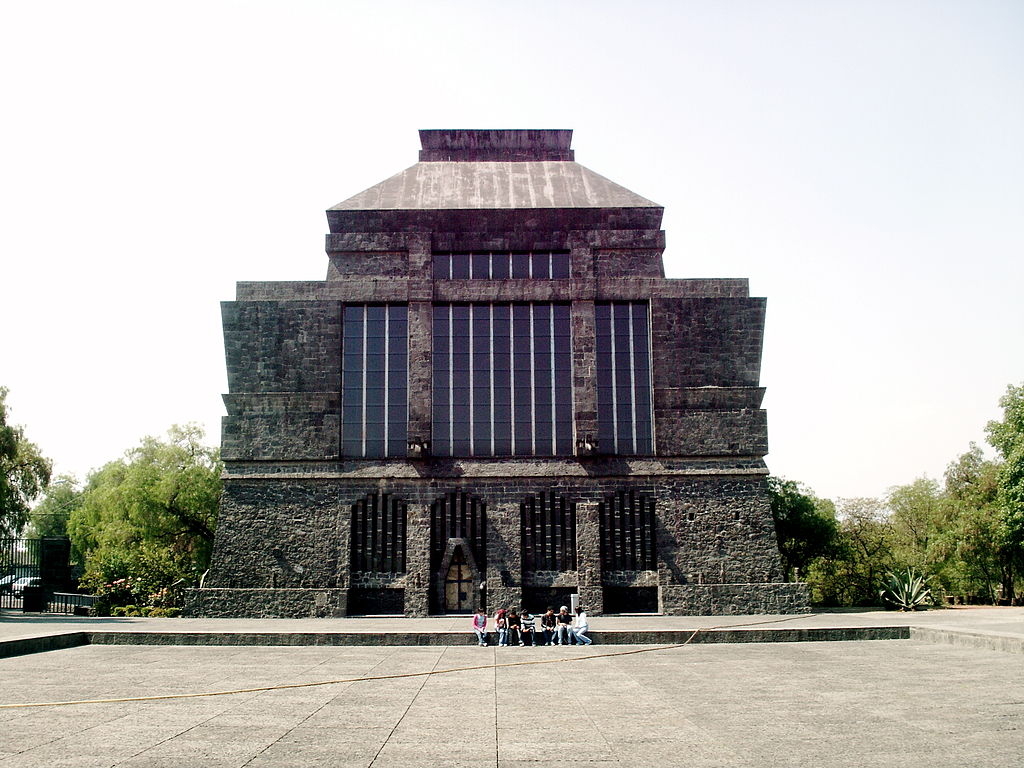
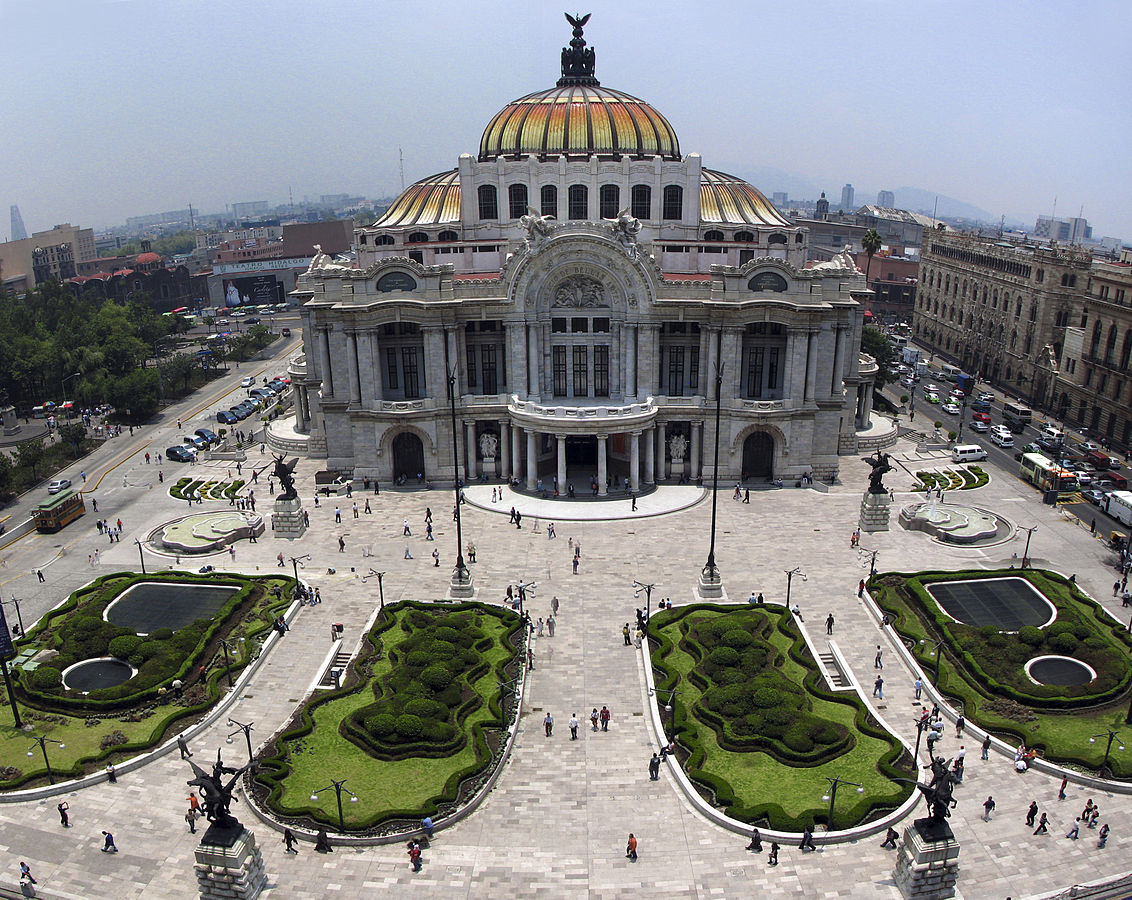
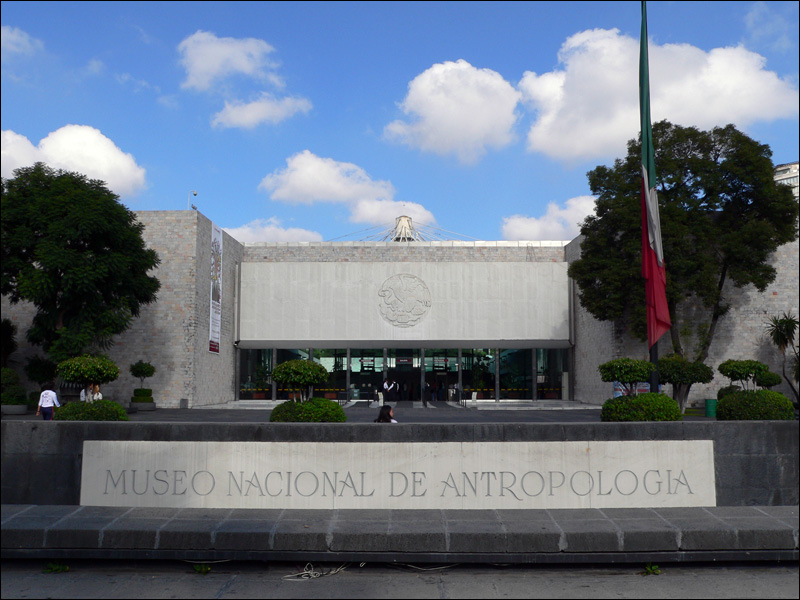
Picture 1: Anahuacalli Museum for pre-Hispanic History © Juan Scott/ Wikimedia Commons.
Picture 2: Palacio de Bellas Artes © Esteban Zissou/ Wikimedia Commons - CC-BY 2.0.
Picture 3: Museum of National Anthropology © kornemuz/ Wikimedia Commons - CC-BY-SA 3.0
LH: Do you get any help by your supporters in accounting and business planning to not get lost with your calculations?
AHF: Not really. I think, one of the biggest problems is that we as artists dont learn accounting, project management and how to organise our money. But the fact that you have to present a budget helps to define your resources.
LH: What about the private sector? Do they support arts and culture?
AHF: No, not really. There is a new program that the government has demanded. A company can spend 10% of its taxes to support culture. Five years ago, this was only possible for film productions, then it was opened for theatre productions and since this year it is finally open to all art fields. But there are two problems. First, the companies have a lot of strategies to avoid paying much taxes. The result is that the program only works if a company is really big. Secondly, there is a jury that checks the projects for their viability and their sustainability. So, again you need to be related to someone in the jury to get its attention. This program is an improvement, but it is not working that well.
LH: Is the lack of education in arts management and especially in fundraising a problem in getting private support?
AHF: Speaking in general terms, most of the artists do not have a clue how to start a project. It only works by trial and error. In my personal case, I got some training by the program Small Cultural Businesses (to be introduced in one of the following interviews) where I created my business plan and learned how to manage projects in a sustainable way. The Goethe-Instituts Forum on Cultural Management was therefore very helpful to me. But still, it is very difficult to get support from the private sector because they are not really related to us. There is no dialogue.
LH: Does the government influence Mexican artists?
AHF: Normally no. The government does not really care what you do until you get massive attention, then you become dangerous. While you are working with small audience, it is not interesting enough.
LH: What are untouchable topics?
AHF: You should not speak about the army and religion, especially when it comes to the Virgin of Guadalupe. Fifteen years ago, you could not speak about the president either, but we achieved that we can mock about the president now, at least a little. In theatre you are freeer than in television. I used to work for a television show, just a few weeks ago, and it got cancelled. Maybe one of the reasons was that we had a puppet that made a satire of the actual president. We have not really been aggressive against him, but we got instruction by the television company to be careful talking about him. Nevertheless the show got cancelled.
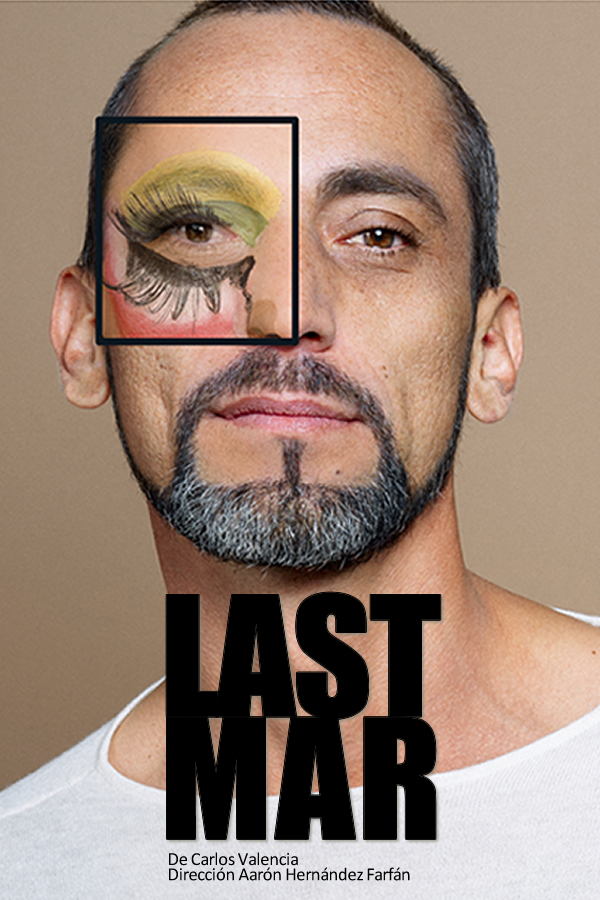
AHF: Violence in its different forms is one of the most important topics. The play I am working on is a recreation of the Lulu plays by Frank Wedekind. The idea is to transform the archetype of Lulu and Jack the Ripper to talk in a contemporary way about violence against women. This is a huge problem here in Mexico and it is very difficult to manage. You might have seen that there is a lot of advertising warning about it and the Metro has a separate part only for women.
There is another play, a monologue called Last Mar, talking about homophobic crimes. It is about the story of a homosexual guy who is telling his love story in a very comical and cabaret way. But suddenly, he tells how his partner has been killed in the beach during vacations. That is, sadly, a very common story in Mexico and I think it is important to talk about it.
LH: What are the biggest challenges for you as an artist?
AHF: Well, the most important one is to consolidate my company. It is not that easy, even if I have a business plan and training how to fulfil it. But it is very difficult for us here in Mexico. That is, why I opened the company up to work internationally. As a matter of fact, one of my goals is to avoid the support of as Mexican institutions much as possible. I fear that the closer I get to them in looking for support the more I am going to be blocked by them. I do not defeat myself, I just look for other doors.
There are no comments for this content yet.
similar content

